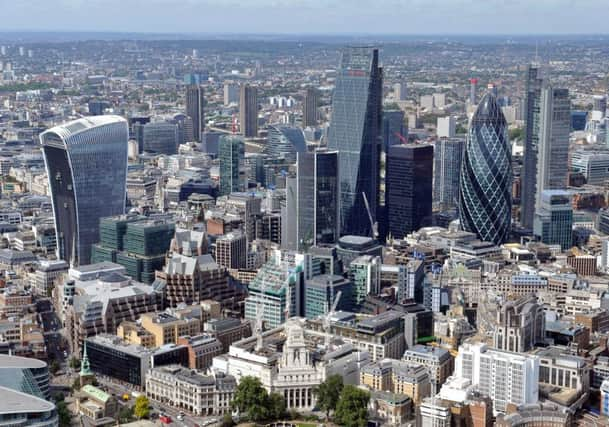Greg Wright: An ineffectual financial watchdog is of no use to anyone


This question has haunted me over the last decade. Much of the financial chaos of 2008 was created by the greed and stupidity of parts of the banking sector.
However, those who were responsible for the chaos that placed us on the path to austerity seem to have got off lightly.
Advertisement
Hide AdAdvertisement
Hide AdTrue, some reputations have been ruined, and the odd knighthood has been returned, but you don’t see many of the fallen leaders of the financial services sector queuing outside food banks.
This perception – that those on the lowest incomes have suffered because of the folly of the rich – is one of the reasons that Jeremy Corbyn became Labour Party leader.
Love him or hate him, Corbyn undoubtedly appeals to those who believe that the wealthy are allowed to operate by a different set of rules.
Many people were enraged when it emerged that the Financial Conduct Authority had decided not to go ahead with a review into Britain’s banking culture in the wake of the Libor rate-rigging scandal.
Advertisement
Hide AdAdvertisement
Hide AdInstead, the FCA said it would “engage individually with firms to encourage their delivery of cultural change”.
Sorry? What does that mean in plain English? At any rate, this is hardly the sort of language that will have the financial services sector quaking in its boots.
The FCA also recently decided not to go ahead with a study into how lenders incentivise staff to sell financial products to consumers.
It took this decision despite concerns that bonuses were responsible for much of the risk-taking behaviour that caused the financial crisis, and also led to widespread mis-selling scandals that have cost the banking industry nearly £30bn.
Advertisement
Hide AdAdvertisement
Hide AdOfficials said the area of inducements and conflicts of interest in retail investments was covered extensively by a major piece of European legislation, which means its study would have been superseded.
These announcements came after the FCA’s chief executive stepped down in the summer when the Chancellor refused to renew his contract. Martin Wheatley was seen as being too harsh on the City.
The fear, of course, is that nothing will have been learned from the events of 2008, when the global economy almost imploded and taxpayers – that’s you and me – had to bail out some of the biggest banks.
Without the threat of tough regulatory action, it’s feared that some of the less scrupulous players in the sector will slink back to their bad old ways.
It isn’t just dyed in the wool socialists who are worried.
Advertisement
Hide AdAdvertisement
Hide AdThe chairman of the influential Commons Treasury Committee Andrew Tyrie – a Conservative – said recent decisions by the FCA were giving the impression of a “weakening of resolve”.
Earlier this month, another member of the Commons Treasury Committee, John Mann, said he believed the Treasury “directly and specifically” intervened to press the watchdog to take a softer line with the banks.
The Chancellor George Osborne has insisted that the UK’s system of financial regulation is “pretty exemplary”.
He also said he had no fore-warning of the decision to drop the banking culture review.
Advertisement
Hide AdAdvertisement
Hide AdEarlier this month, Tracey McDermott, the FCA’s interim chief executive, told the BBC that the regulator is “not going soft on banks”, and cited its £72m fine imposed on Barclays in November as a sign that it is taking action.
Nobody doubts that the UK needs a flourishing financial services sector. We all want the brightest and best bankers to flock to London, because the economic benefits of their activities can flow outwards to regions like Yorkshire.
But if the sector is to prosper, it must face a regulator that refuses to back down when faced with potential wrongdoing or folly. An ineffectual watchdog will bring ruin to us all.